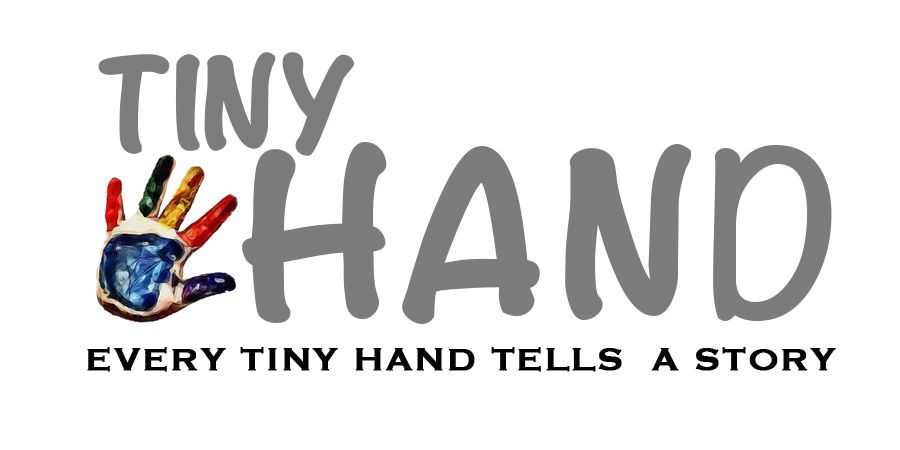“The Elephant Toy and The Three Little Toy Vendor
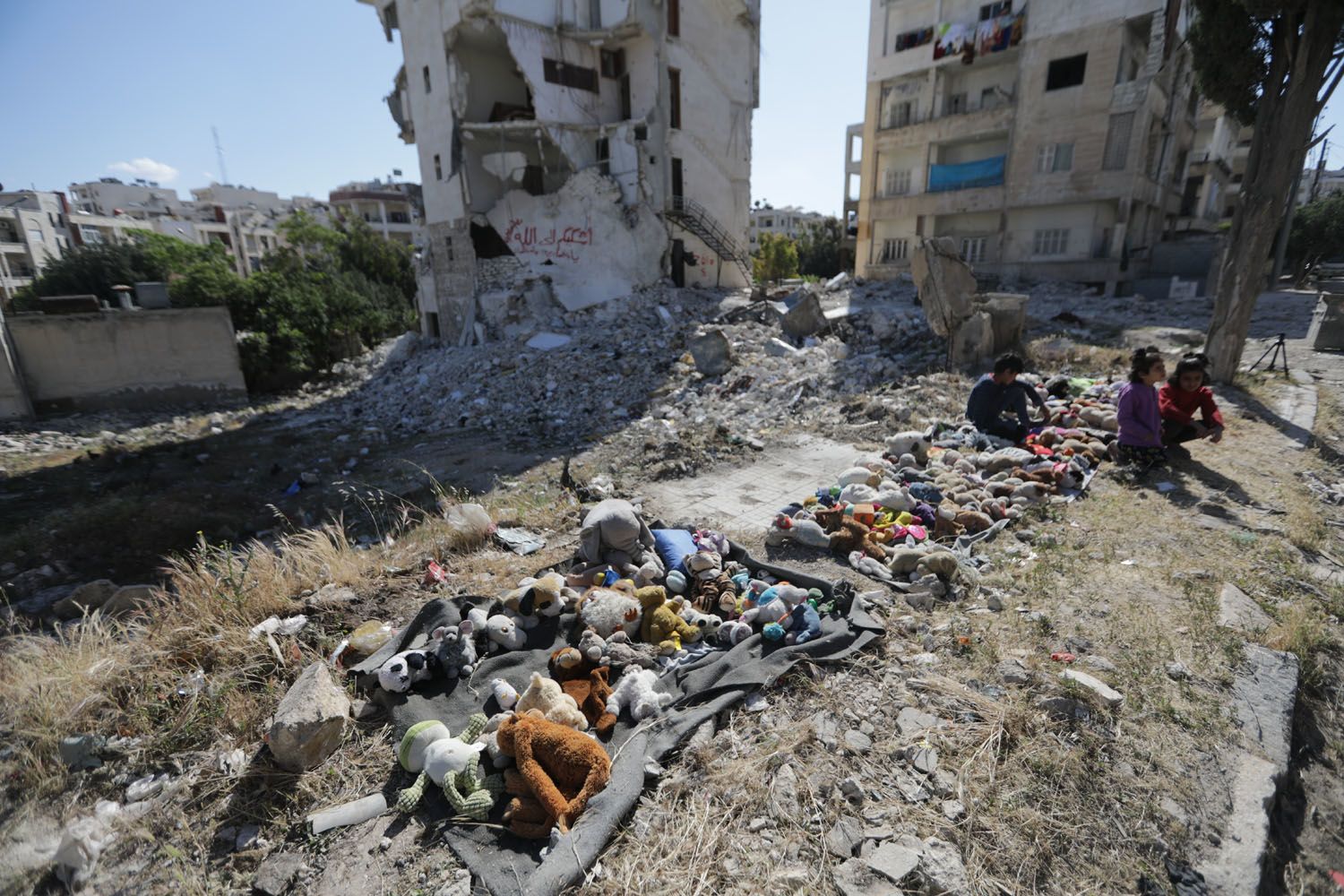
Holding an elephant toy in her hand, Little Dara hugged it, and whispered into its ear saying: “Don’t be afraid! I will not lose you today too!” These words came out of the ten-year-old girl while arranging toys in different sizes and colors along with her siblings.
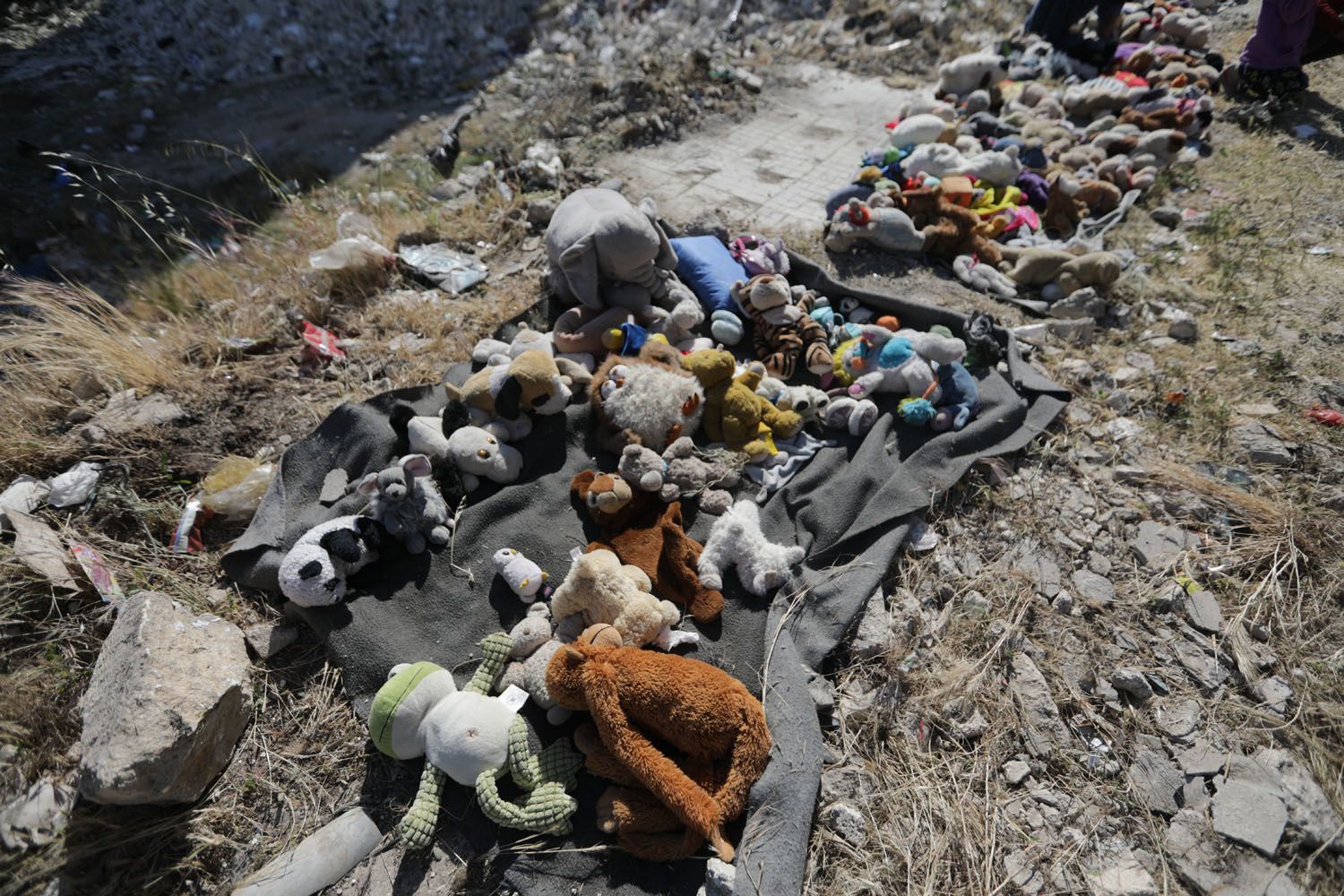
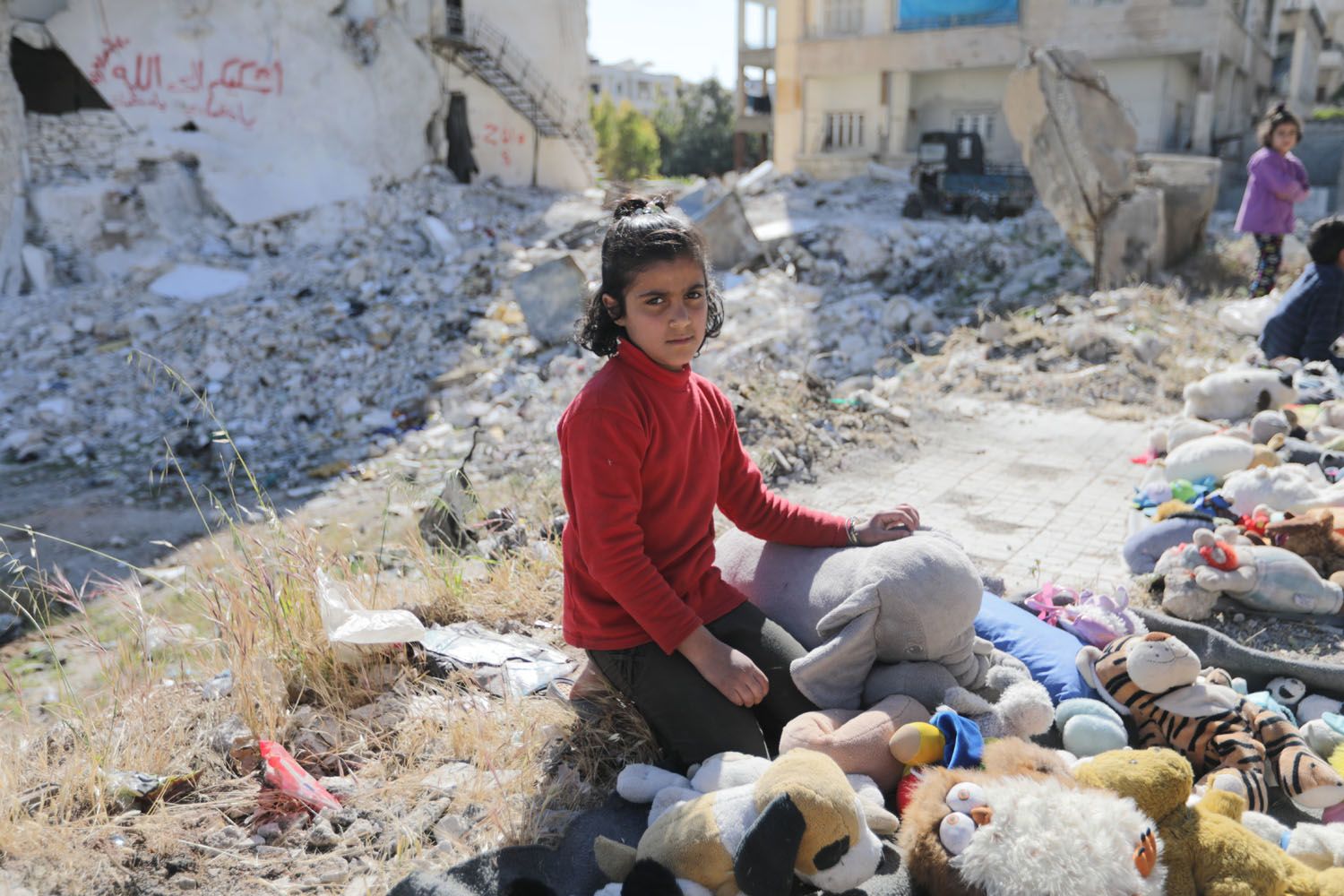
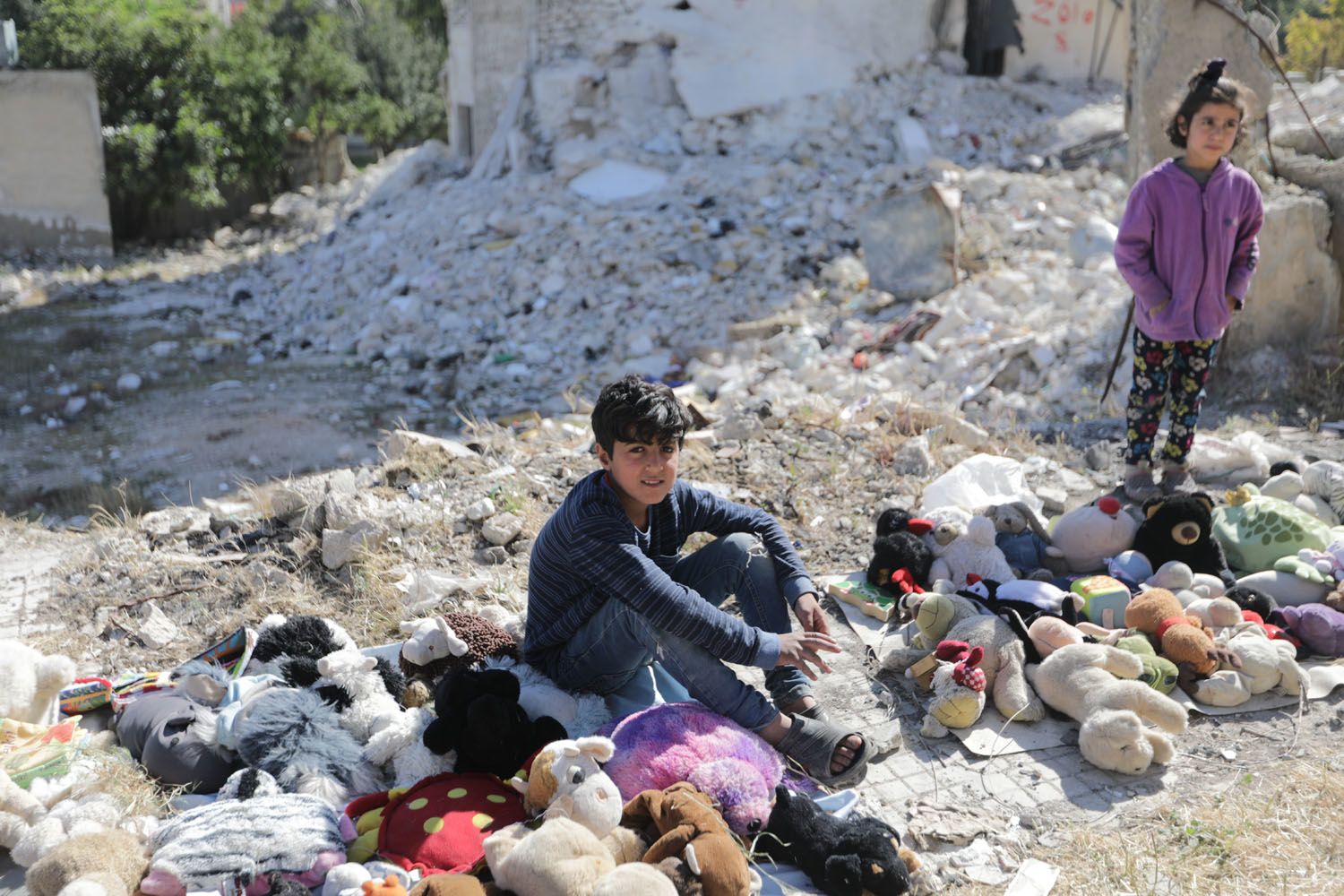
An elephant, a panda, and a tiger — these were the kings of the jungle on sale together with a collection of other toys offered for purchase on piles of stones in Idlib.
Little Dara promised her elephant toy that he would stay with her. She is strongly attached to that toy; however, she deeply desires to sell it to one of the passers-by so she could “earn enough money to cater for some of her family’s basic needs,” she said.
The little girl lives with her family in a destroyed building in the center of Idlib, the opposition’s last stronghold in northwestern Syria.
Grabbing and moving a toy in several directions while sitting with her siblings on a pavement before a huge number of toys, they might appear for a while as a group of kids playing in front of their house. That would be such a beautiful scene of a normal life any kid in the world can have.
Dara put the toy down on the ground beside the rest of the toys and stood up. Tired from being out under the summer’s scorching sun, she walked at a snail’s pace into a demolished building. We followed her inside after asking her about the place she dwells in.
In this four-story building, only one room had survived an air raid launched by the Syrian regime's air force. “I, my dad, mom, grandmother, my step-mother, and my five siblings live together; the eleven of us share this single room,” said Dara.
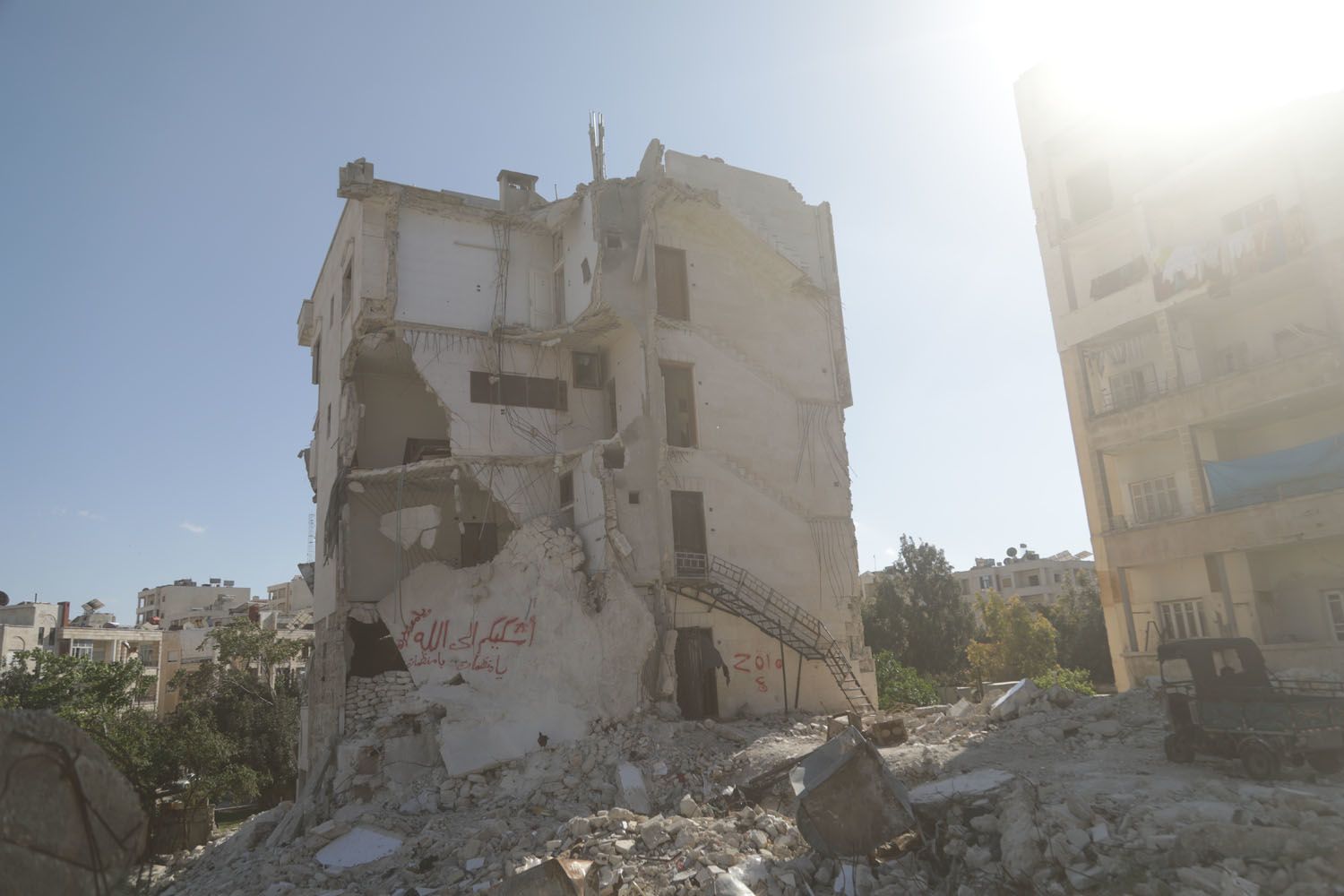
Dara and Mr. Elephant: Different Journeys, Same Ending!
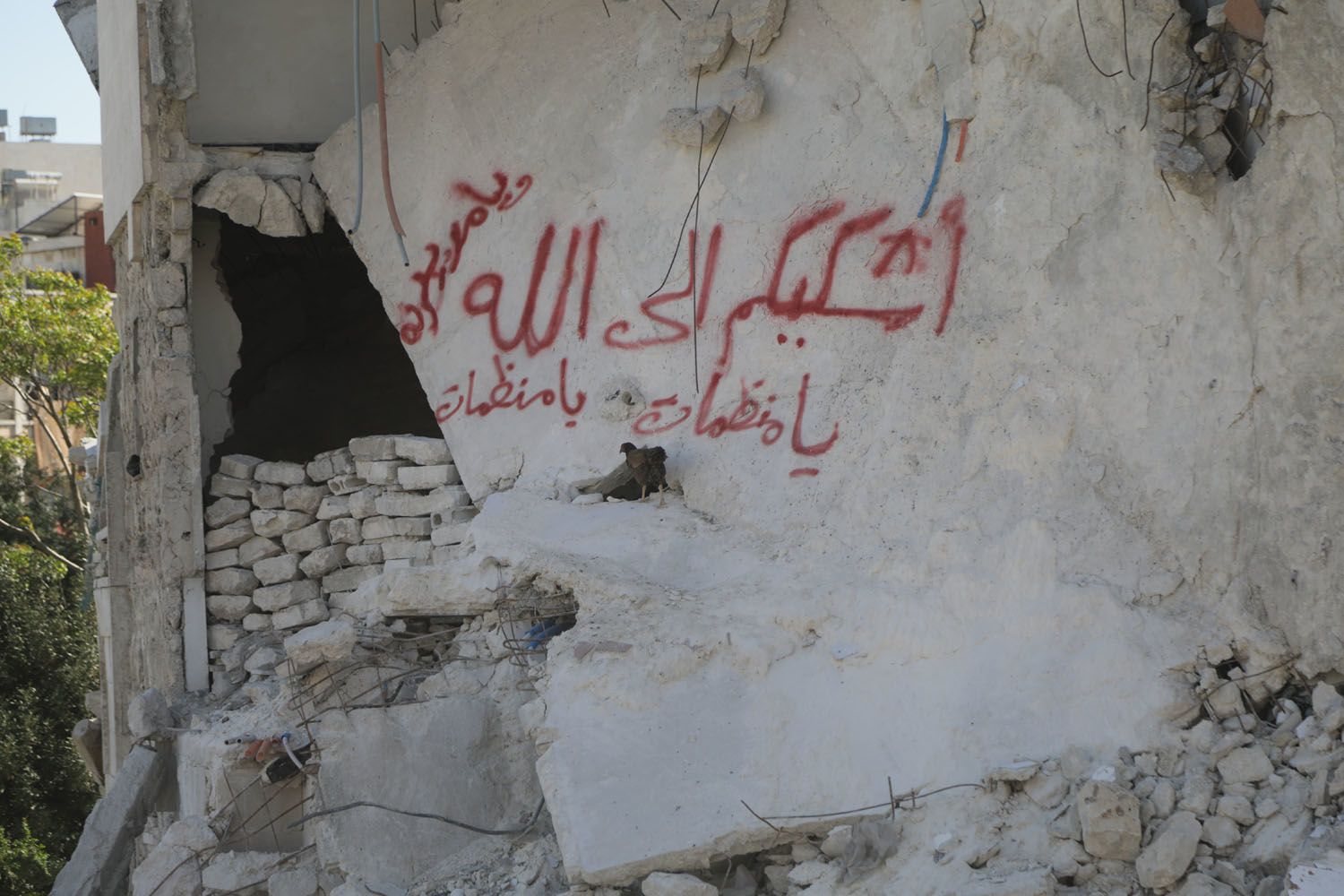
A year ago, holding her father’s hand, rather than her toy, Dara and ten of her family members hastily left their home in an ambulance, leaving behind her toys and the clothes she loved. She escaped a missile or a raid that might have set her house and toys on fire, she narrated.
Most likely at that same time, the elephant toy was forced out of the house of the child who had used to play with it. Most probably because the kid decided to buy a new toy. Then, the elephant toy found itself along with other toys starting a journey crossing the sea inside boxes of exported used toys. Finally, it reached the Turkish shores before entering the Syrian territories.
Dara’s and the elephant toy’s journeys are quite similar. The girl started to relate to us her long displacement journey after the fighting and bombardment targeting Abu al-Duhur, their town in northwestern Syria, intensified.
“We fled the town leaving everything behind but the clothes on our backs,” she said, “I left everything: my toys, my clothes, and my belongings. We went into an ambulance that took us out because we had neither a car nor enough money to pay for a taxi.”
“Our journey was long and the means of transportations we used were many,” Dara went on, “We reached Tell Touqan, a village to the east of Idlib in northwestern Syria, then Salqin, a town on the Syrian-Turkish borders until we finally arrived at the city of Idlib.”
“We had neither money nor acquaintances here. The only place that welcomed our arrival and offered us shelter was that wall-less, doorless demolished building in Idlib’s suburbs,” she added, “No one here asks for a rent. The building is in ruins and could collapse and get us killed at any moment; but we have no other choice. A full year has passed since we started to live here.”
Over the past months, the Syrian regime forces backed by Russia's air force launched a massive military campaign against the Governorate of Idlib, the opposition’s last foothold in northwestern Syria.
As a result, vast areas in Idlib came under the regime’s control after the Syrian factions withdrew due to heavy bombardment and high casualties.
Upon talking with Dara, you must fell the deep sadness and sorrow her voice reveals. She mainly speaks about displacement and death — a natural consequence of having three of her uncles killed in the attacks and one of her father’s hands severely wounded, leaving him unable to work.
“I feel profoundly sad for my disabled father amid the current high living costs,” the 10-year-old girl uttered those big words.
It is war that makes a little child turn into an adult, ending her childhood before its time.
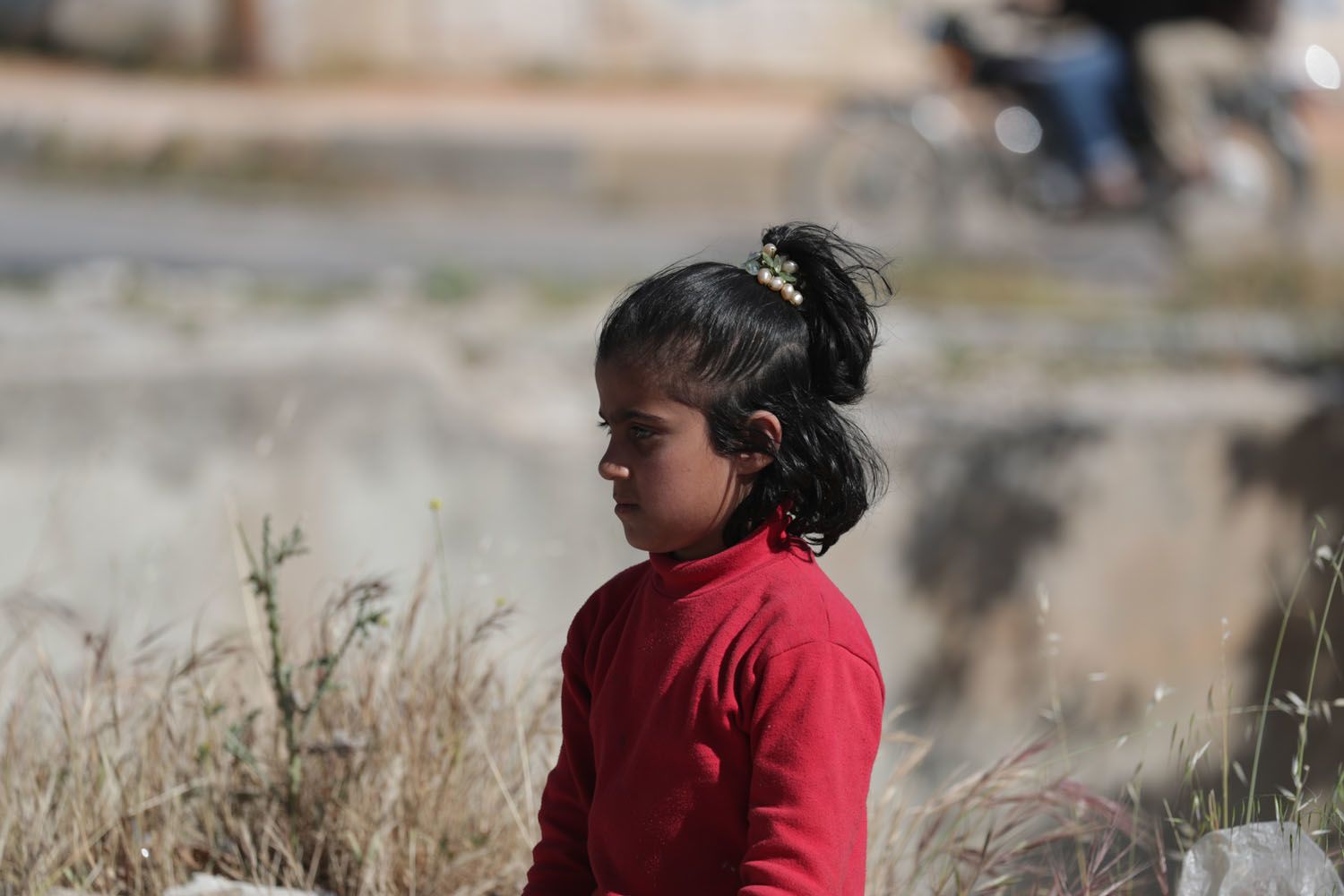
Dara
Dara
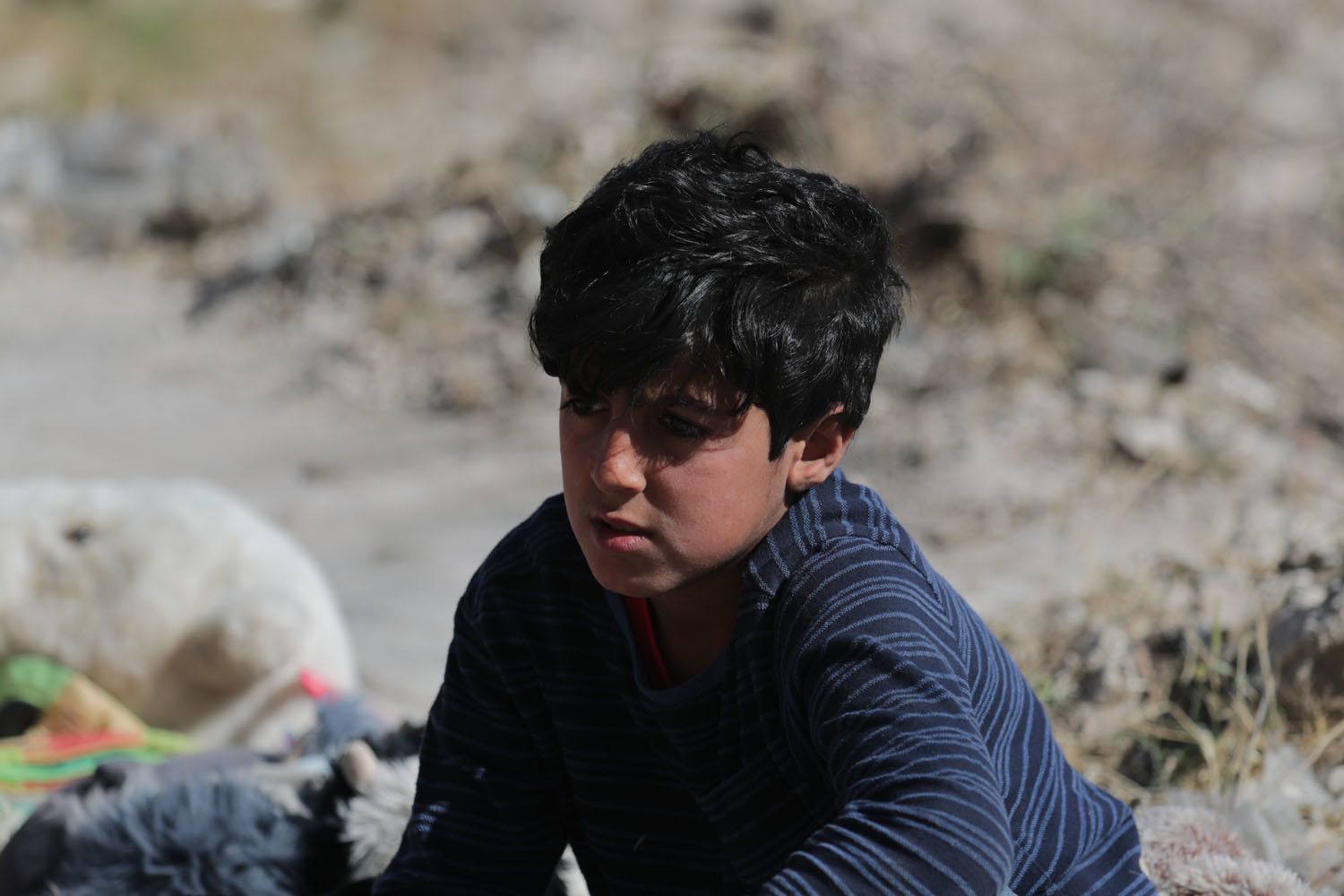
Sari
Sari
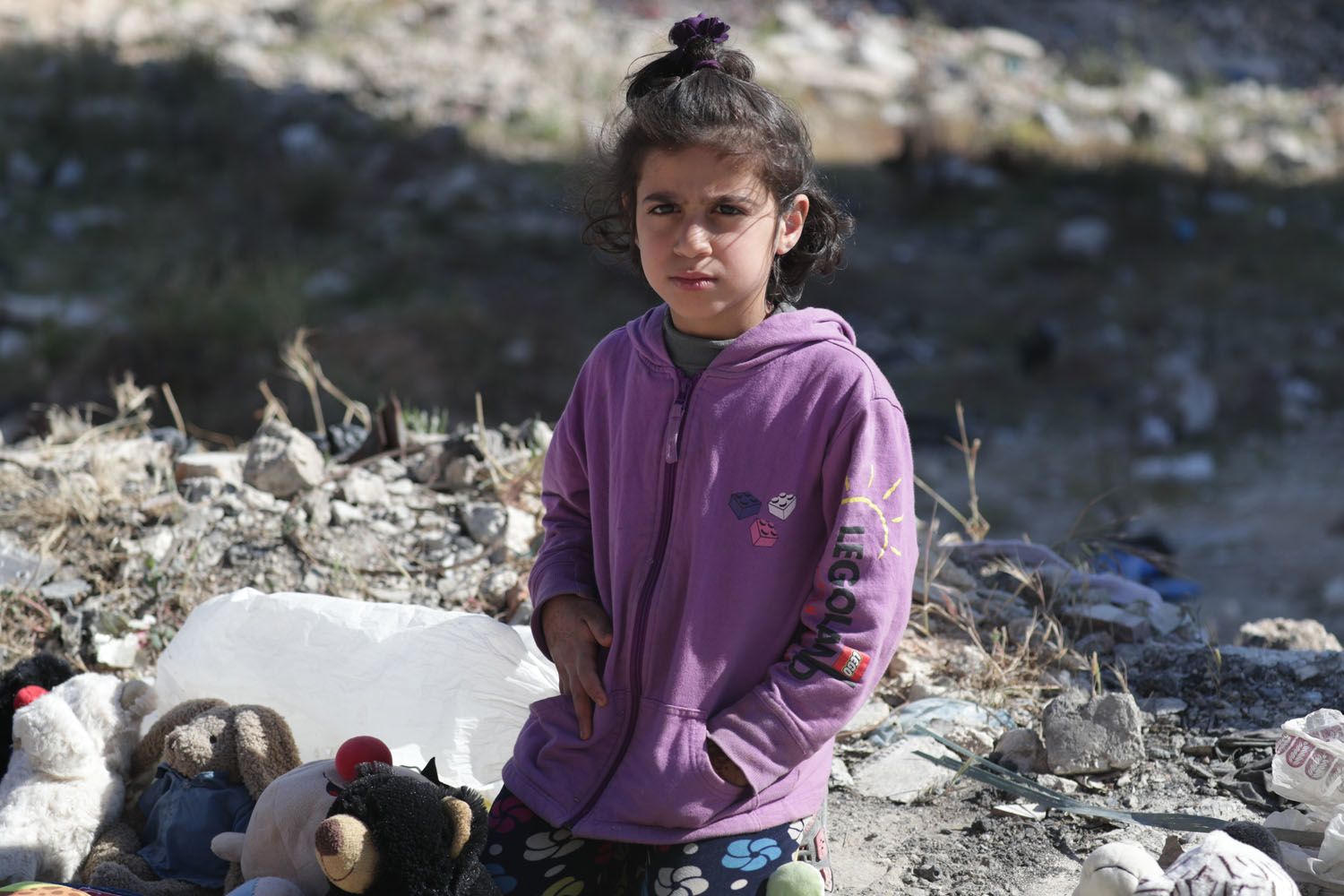
Asma
Asma
“Dropout Children Have Nowhere to Go but Wednesday Market”
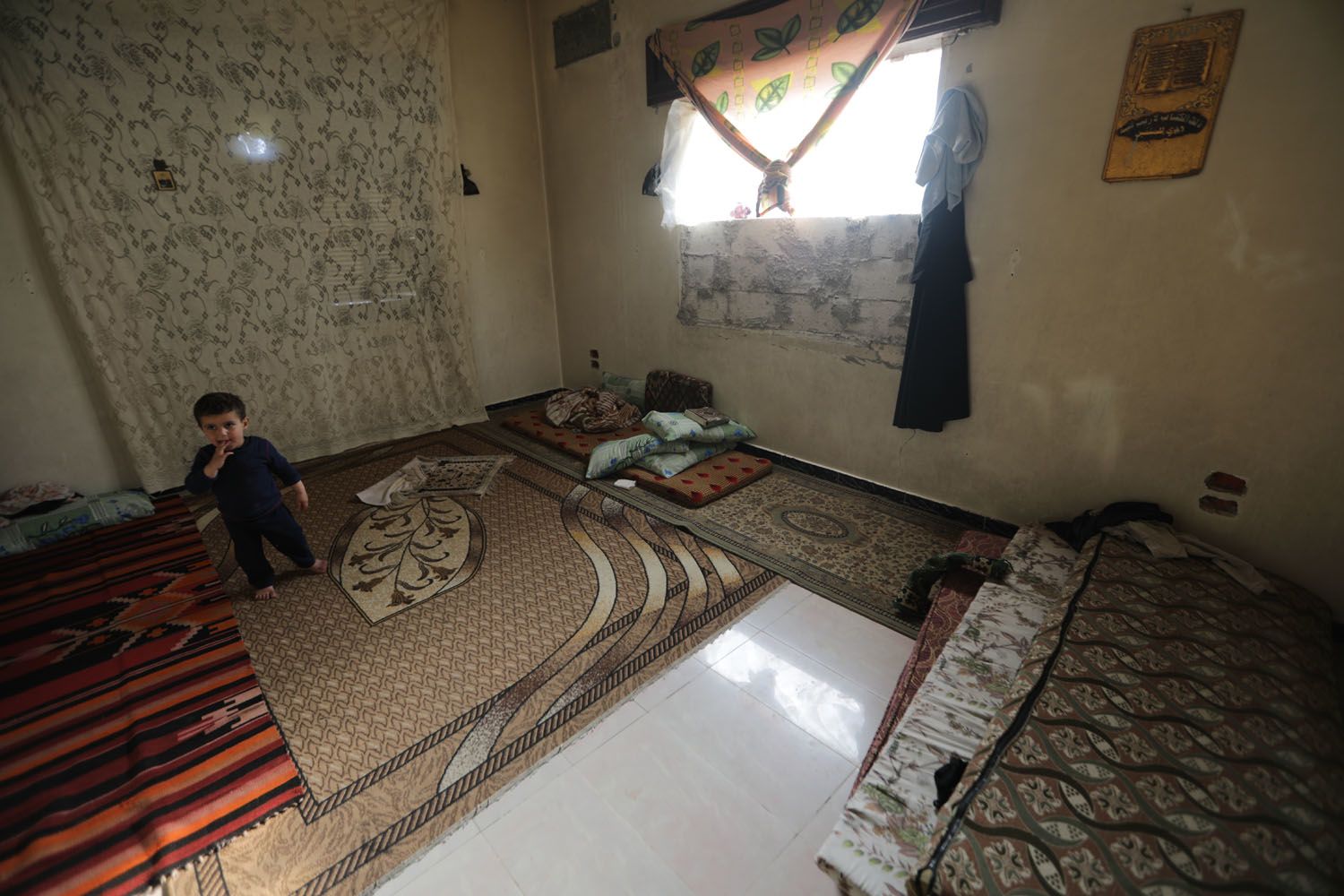
The three children’s visit to the market is different from any visit paid by other children in the world. On Wednesdays, the three of them go to the secondhand toy and children's clothing market.
“We pick the toys and clothes that are in a good condition so we could sell them,” they said “We endure harsh conditions. We work to support our family,” said Sari, Dara’s elder brother, who is 12 years-old, as he started to tell us about his workday routine.
Sari lifted a plastic bag, the size of his body, over his back and walked out to a pavement across the building they live in. “Every day at 10 am, we get out of the building, arrange the toys on the pavement, display them to the passers-by, and stay there until sunset,” he said.
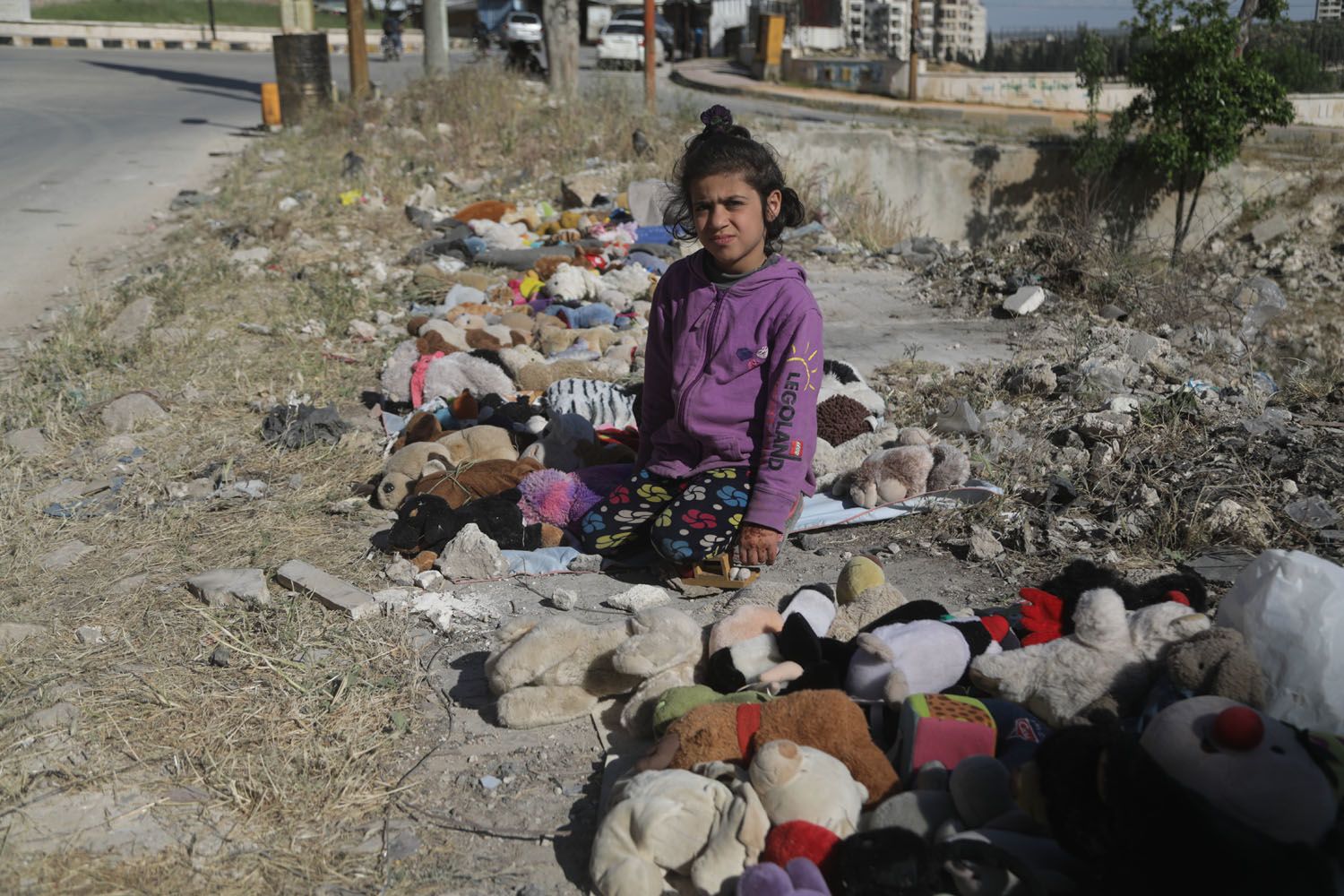
After a tiring long workday, 1,000 to 2,000 Syrian pounds (about $ 80 cents) is all that the three children can earn. It is such a low income amid the Syrian pound’s collapse and the soaring prices of commodities at markets. Now, one U.S. dollar is equal to almost 1,700 Syrian pounds.
“What do you miss the most?” we asked the children. “My school,” answered Dara, jumping enthusiastically.
It is not only war that can treat you cruelly. A disease, too, can stand in your way, since the global spread of COVID-19 outbreak led to the shutdown of schools in the areas controlled by the Syrian opposition.
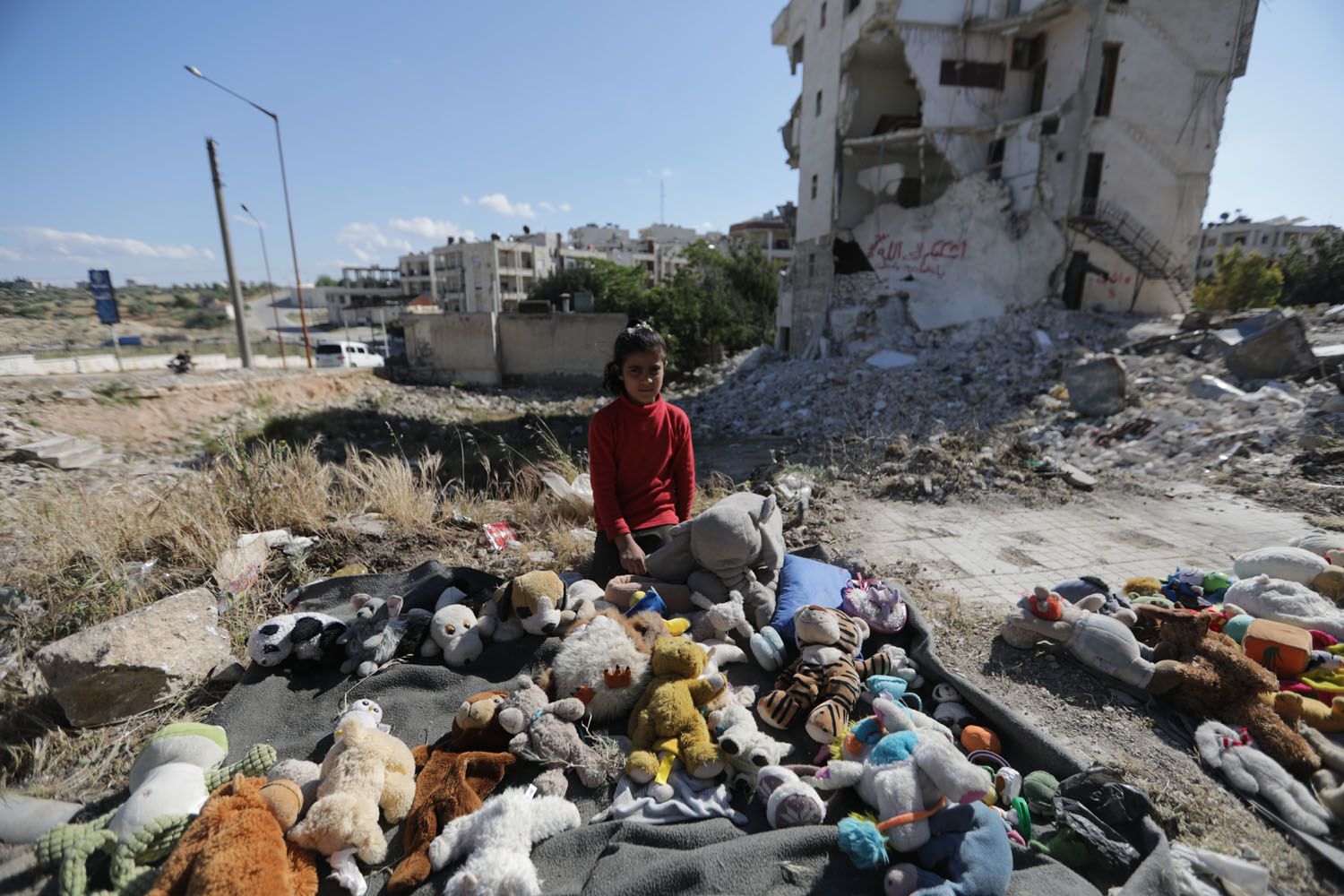
“I used to go to school every day,” said Dara. Being at school was her childhood’s only surviving mark where she used to play and study with her friends. “I miss my school. I love it more than our demolished house as everything here is awfully bad. We share our house with the poultry we keep in its most destructed section.”
At the end of the interview, Dara concluded with her wishes that the coronavirus would vanish soon so she could go back to school again.
As of now, no cases of Covid-19 have been reported in Idlib, a home to over 3 million people. However, physicians feel concerned that the possible spread of the virus in the densely-crowded displaced camps could set off a humanitarian crisis in Idlib amid lack of appropriate medical healthcare services due to the nine-year-long conflict that had destroyed the country’s medical sector.
At sunset, Dara and her siblings packed up their toys in a worn-out plastic bag on their way back to home. “You'll come home again today, Mr. Elephant!" whispered Dara to her favorite toy.
They know well that another long workday awaits them!!

